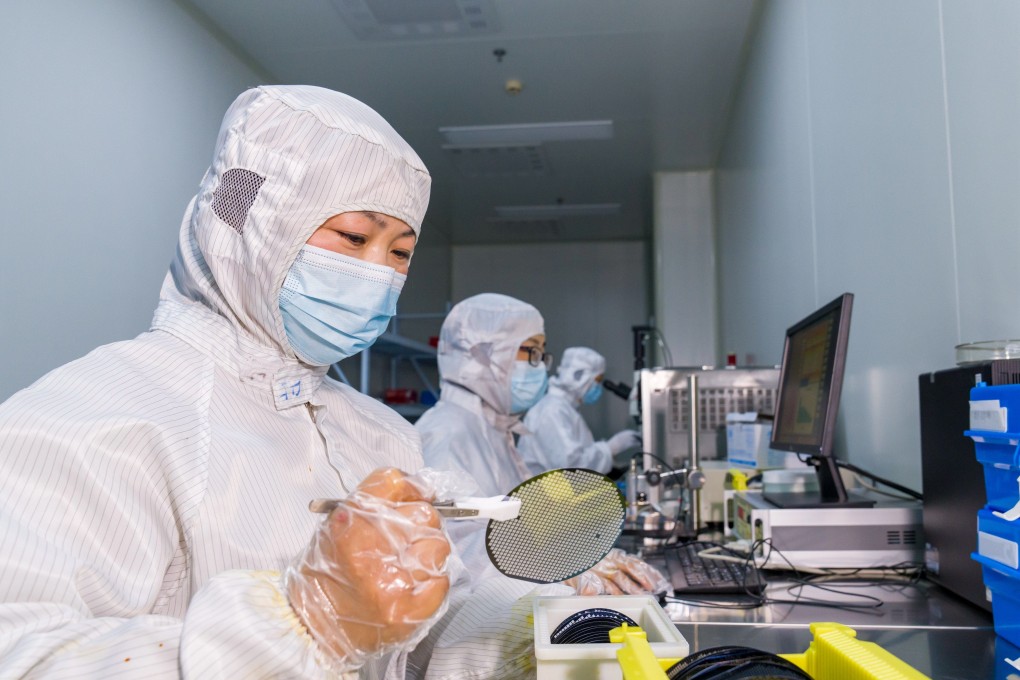Chinese chip experts debate way forward in the shadow of Sino-US tech war
- One expert said globalisation of the industry was over, and that the semiconductor supply chain will ‘inevitably become more fragmented’
- Another speaker said China can produce advanced NAND flash memory chips even without access to banned extreme ultraviolet lithography tools

China hosted a semiconductor conference in Nanjing this week, in the shadow of US export restrictions on the country’s chip making industry, where local experts shared their views on how to cope with the challenges.
Yu Xiekang, chairman of the China Semiconductor Industry Association, told the World Semiconductor Conference Expo on Thursday that US-led export controls have disrupted China’s advanced chip making capabilities. He called for “enhanced cooperation”, repeating his association’s stance that the industry should join hands to oppose Washington’s curbs on China’s chip industry.
Wei Shaojun, a prominent Chinese semiconductor expert and former director of the Institute of Microelectronics at Tsinghua University, said globalisation of the industry “is over” amid the geopolitical tensions and that the semiconductor supply chain will “inevitably become more fragmented”.
“China bears the brunt of the semiconductor fragmentation and faces serious challenges ahead,” Wei said, adding that the local chip sector has grown over the past decade by tapping into the global supply chain to secure the best available resources.
Wei said US sanctions aimed at preventing China’s progress in advanced process nodes bodes ill for the country as the current emphasis on legacy nodes is vulnerable in the long run.
Ni Guangnan, a chip expert at the Institute of Computing Technology under the Chinese Academy of Sciences, said the country should take advantage of the size of its domestic market to spur growth of local players such as US sanctions-hit Yangtze Memory Technologies Corp. Ni said China was able to produce advanced NAND flash memory chips even without access to extreme ultraviolet lithography tools, which are barred under Washington’s export controls.
The concerns flagged at the conference come as Washington is reportedly set to further tighten trade restrictions, impacting the ability of Intel and Nvidia to ship advanced artificial intelligence chips to China-based customers. This has prompted lobbying efforts by the US Semiconductor Industry Association and some top American chip makers, including Intel, to try and convince the Biden administration to show restraint.